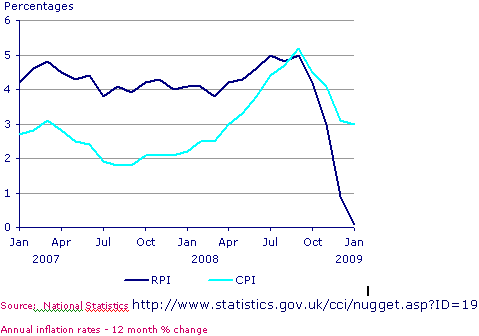'QE' – the wrong policy fighting the wrong enemy
‘QE’ – the wrong policy fighting the wrong enemy
by Dr. Ros Altmann
(All material on this page is subject to copyright and must not be reproduced without the author’s permission.)
The Government has just taken another huge gamble with our economic future. In its desperation to save the banks, it has encouraged the Bank of England to print money (electronically) and to cut rates again to an even more ridiculously low level of half a per cent. These policies are a continuation of the assault on savers and pensioners that we have seen relentlessly in recent months and are storing up huge inflationary dangers for us all.
Firstly, let me deal with the interest rate cut. Bringing rates down yet again, in my view, is more likely to worsen the economic outlook, rather than improving it. Of course, borrowers with tracker mortgages will benefit from the bonanza of such previously unimaginably low rates, which allow them to either pay back their loans more quickly or have more money to spend now.
But savers and pensioners are being hit yet again and even building societies have said rates have been cut too far. Lenders cannot issue new mortgages unless they have savers’ money coming in, however with interest rates so low savers are deserting in droves. So lower rates could make the availability of mortgages for new borrowers worse, not better, which is the opposite of the Government’s intention! Why is the Government ignoring the plight of pensioners and the pleas of building societies? Well, I think this is all about saving the banks, at any price.
Next, let’s consider this ‘quantitative easing’ (also called ‘QE’ – or creating money out of thin air). In reality, this is just a fancy name for ‘printing money’ – it has similar consequences and has been tried in other countries before. In Japan, it did not work, in Zimbabwe it worked far too well, debasing the currency!
‘QE’ is a giant gamble, a leap in the dark, with taxpayers’ hard-earned money. The Bank of England admits it does not really know when or whether the policy will even work. But it is ploughing on anyway, in order to try to save our stricken financial houses and hope they will revive the economy with new loans to businesses and households.
Of course, it is not admitting the huge dangers. The spectre of deflation (falling prices) is being used as a justification for unprecedented monetary easing. We are told that deflation would be very dangerous, if consumers stop spending in anticipation of cheaper prices ahead.
You may be puzzled by this, as are many economists. Most of us know, only too well, that inflation is still a problem, even though the economy is nosediving. Yes, prices may decline in coming months but that is not a major deflation. In fact, at the moment, price rises are still the norm. Food price rises, increasing insurance costs, higher import costs after the pound’s collapse, are hitting us all. The reality is that the consumer price index (cpi) is still well above the Bank of England’s 2% target – and pensioner inflation is even higher than the general consumer price index. So the costs of every day life are still rising, while the Bank brings interest rates down on the pretence of deflation. It says low rates do not matter because if prices fall, we can all buy far more with our money. However, for most of us, most prices are not falling at all. So, in real terms, pensioner and savers’ incomes are being hit hard by low rates, while the Government ignores their plight.
It appears that the authorities are willing to do whatever it takes to save our failed banks. They are determined to keep throwing money at them, hoping that this money will then filter out of the banking system into the rest of the economy. But the banking mechanisms are blocked by past bad debts, so money just stays inside the banks. That is certainly what has been happening so far.
If it wants to get loans to businesses, I think the Government should do this directly. Of course that takes time. But waiting and hoping for the banks to do it has proved fruitless. Government must take over and stop being guided by leaders of the banks that have caused such problems for all of us.
We should all be extremely worried that the Bank of England appears to have abandoned its core remit, which is to safeguard the nation against inflation. By providing massive monetary stimulus while inflation is still way above the 2% target, the Bank of England is flying blind. Make no mistake, this will most likely mean a massive inflationary problem in years to come.
The vast monetary easing of recent months will eventually feed through and the outlook for inflation when that happens is dire. Once the banks have soaked up enough taxpayers’ money, they will start to lend to other areas of the economy, but we have no idea how long that will take or what will be left of the private sector by then. What we do know is that policy operates with a lag, so the authorities will be unable to unwind today’s moves fast enough to fight inflation effectively.
Bankers pay and (huge) pensions are in tact while everyone else’s are put at risk. Yes bankers are powerful and have a strong lobby, but when will the authorities get a grip? We should give past policies time to work, or preferably take charge of lending directly to cash-starved businesses, rather than relying on the broken banks. If we carry on as we are, I fear we will lurch from this crisis to the next crisis – from credit starvation to inflation – and once again, pensioners and savers will be the innocent victims.



